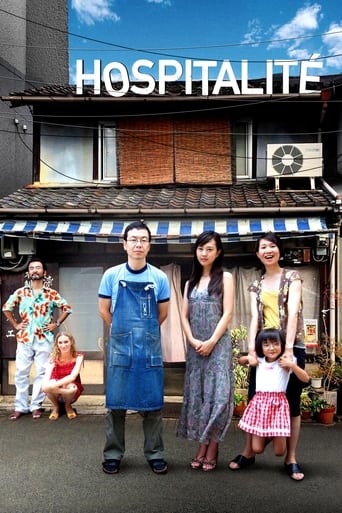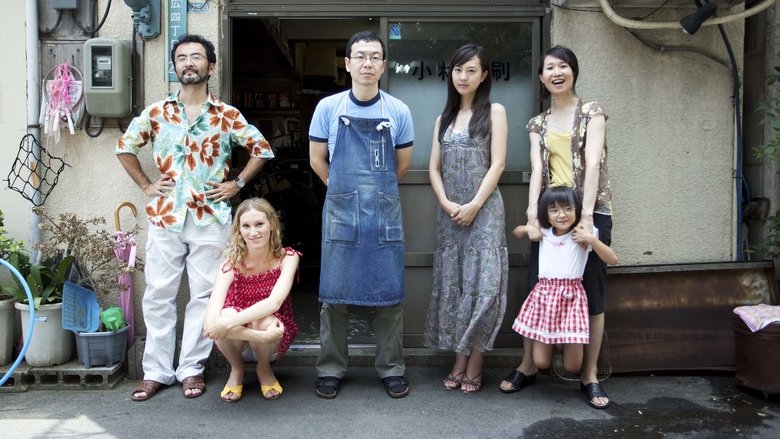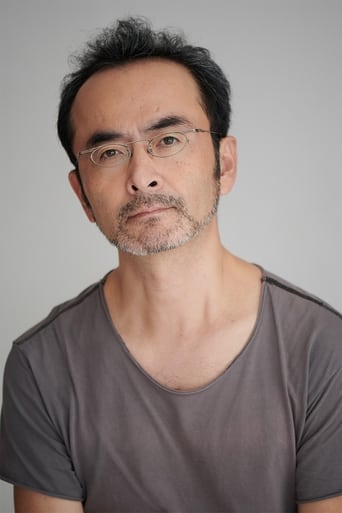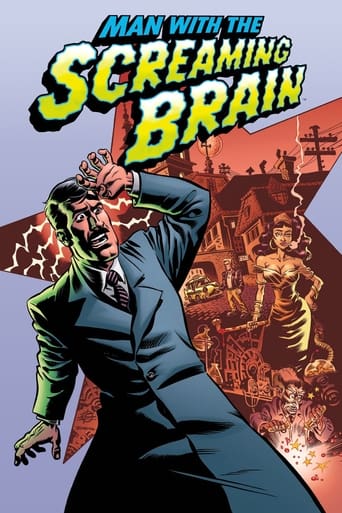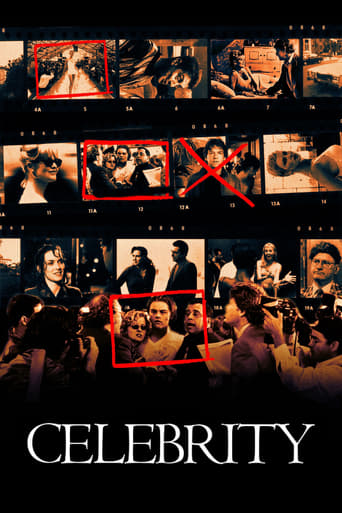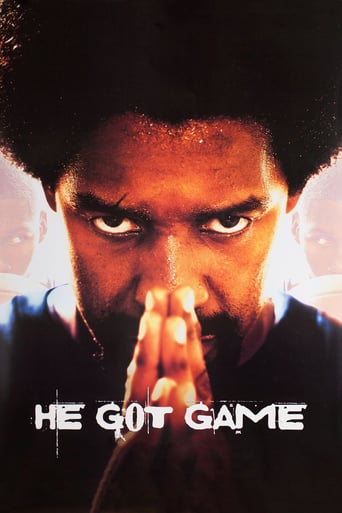Hospitalité (2011)
In this black comedy the lives of a timid small-time printer and his young wife are turned inside out by the arrival of a stranger who moves in and takes over their world. Set in a village-like outpost in the heart of Tokyo, this is a wry commentary on Japanese xenophobia. Kiki Sugino heads a spritely ensemble cast.
Watch Trailer
Free Trial Channels
Cast


Similar titles
Reviews
Blending excellent reporting and strong storytelling, this is a disturbing film truly stranger than fiction
At first rather annoying in its heavy emphasis on reenactments, this movie ultimately proves fascinating, simply because the complicated, highly dramatic tale it tells still almost defies belief.
This is one of the few movies I've ever seen where the whole audience broke into spontaneous, loud applause a third of the way in.
One of the best movies of the year! Incredible from the beginning to the end.
HOSPITALITÉ (KANTAI). Viewed on Streaming. Scenario = eight (8) stars; cinematography/lighting = seven (7) stars; set designs/locations = six (6) stars; subtitles = four (4) stars; music = three (3) stars. Director Kôji Fukada rolls out a unique and effective mash up of humor, suspense, drama, blackmail, con artistry, and illegal aliens! Although it drags a bit here and there (mostly due to prolonged staring by the principal bumpkin characters), the scenario (Fukada is also credited as the script writer) provides ornithological symmetry by starting with an over-sized canary (actually a lost-bird poster thereof) and ending with over-sized pigeons (the human kind). As serial con artists extraordinaire, Kanji Furutachi and Bryerly Long easily steal every scene they are in, as they systematically take over control (via charm, alternative facts, blackmail, and seduction) of a small print shop with living quarters above and turn the place into a transient "safe" house for Gaijin refuges with cash (the latter mostly look like former English teachers whose contracts are up, but don't want to go home). Whether the Long and Furutach characters also help the police round up illegals is left open to question (but the police only seem to arrive when there is literally no space left for additional paying Gaijin). Cinematography/lighting (semi-wide screen, color) are fine. Interior print-shop shots are remarkable for squeezing film makers and equipment into a tiny space studded with printing machinery jutting into walk ways! Subtitles need some serious editing. They are usually just too long for those who are speed-reading challenged (and get sick of hitting the pause button). Music is sparse and mostly forgettable. Highly recommended. WILLIAM FLANIGAN, PhD.
One day a man called Kagawa appears at a small family business. It turns out he is a vague acquaintance of the husband. Almost immediately he starts working and living there and soon moves in his mysterious 'Brazilian bride'. Before long, these two begin manipulating the situation and start taking massive liberties, while coming between the host couple in the process. None of the characters seem to be honest with each other and keep various secrets. Kagawa seems to be the only one aware of this fact, and so he exploits it to the fullest. He uses information he knows about the husband and wife in order to fulfil his main purpose which is to shelter a large group of illegal immigrants in this house.Hospitalité is a comedy-drama that is not really plot-driven; it's more of a character piece. It is not overly funny, although Kanji Furudachi as Kagawa does put in an amusing performance. But it's consistently likable, even if at times it does seem a bit meandering. For instance, there are a few plot strands that aren't developed very well. But like I say it's really more about the characters and they are engaging enough. This is quite a slight film but an enjoyable one nevertheless.
The oddly-titled 'Hospitalité' ('Kantai'), Koji Fukada's film set in working-class Tokyo about a sudden "acquaintance" who moves in on a little family and takes over their house and business and invades with a horde of fake relatives, is a variation on the theme treated thriller-style in Dominik Moll's 2000 'With a Friend Like Harry,' which starred the charmingly menacing Sergi Lopez. This time the focus is on hidden secrets that backfire and an elaborate scheme to hide illegal immigrants. Fukada's droll comedy is a triumph of the deadpan that overwhelms itself with an overdone finale and a too-simple trajectory. This is one of those process tales. The alien takeover advances, proceeds, climaxes, explodes, and vanishes, leaving us with zero enlightenment about human beings or these characters, who remain opaque. So too with the mildly thought-provoking implications about Japanese xenophobia. But there is much neatness and drollery in the plotting and the acting here, and this is promising work.The plot opens with a family of four who live over a little printing business. The production has dwindled to subcontracted government pension envelopes for the elderly (a boom business). There's the husband, Mikio Kobayashi (Keji Yamaguchi); his very young wife Natsuki (Kiki Sugino), his divorced sister Seiko (Kumi Hyodo), and his young daughter Eriko (Eriko Ono), not by the young wife, whom Natsuki "tutors" in English, though she has only an elementary knowledge of the language. Eriko's pet parakeet, Pea (Pi-chan), has escaped and they put up a notice on the local bulletin board. Seiko is thinking about leaving the country, but meanwhile is involved with a local committee to deal with the threat of squatters and homeless people in the neighborhood.Kagawa (Kanji Furudachi) -- that's what he calls himself, anyway, tears down the parakeet notice and goes to the house, claiming to be the son of a man who originally financed the printing business with Kobayashi. The regular employee who operates the press has just fallen ill, and Kagawa offers to fill in. He also takes up residence upstairs, saying he's just been evicted. Without explanation he brings a foreign woman, Annabelle (Bryerly Long) who he says is his Brailian wife. She tells somebody else she's Bosnian, but she speaks unaccented English, and little Japanese. She adds the first truly ominous and weird note.Kagawa now proceeds to do his work, and we find out secrets as we watch. Mikio's previous wife did not die of an illness as he's told Kagawa; she left him and has remarried. Mikio runs into her while shopping, and Eriko has dinner with her -- she is, after all, Eriko's mother. Natsuki secretly meets with a seedy young guy called Honma (Naoki Sugawara) who turns out to be a relative who's getting illicit money from her. While Natsuki, Eriko, and Kagawa are out looking for the parakeet, which he pretends to have spotted earlier, Kagawa uses his binoculars to spy Mikio having sex with Annabelle. He uses this secret to force Miko to take in Natsuki's seedy relative as another assistant at the press, and he steps up production. Natsuki has an admirer, Kono (Tatsuya Kawamura), a pop singer, and she eventually has a secret with him too.And there is more that happens and to say it eventually quite strains credulity would be to overlook, perhaps, the intentionally surreal nature of the proceedings right from the beginning. The casualness with which details about people's lives are peeled, or reeled, off, reminds one of the plays of Ionesco. And, by the way, several of the principals here have strong theatrical experience, which may help explain good timing and pointed delivery of some key lines. Fukada is good at delivering his surprises. The only problem, but it is a serious one, is that when Kagawa's takeover goes into high gear, the event and its staging become so over-the-top that one begins to lose focus on the characters and in the end one realizes that nothing of any consequence has been revealed about anybody, really.The way the movie zeros in on a household and stays in its rooms suggests with deep irony how unlike Ozu or his more recent avatars all this is, though the film consciously alludes to him. These people like those of Morita's 'The Family Game' are a send-up of the traditional Japanese family. They're mismatched, ill-sorted, and not what they seem. Kenichi Negishi's sharp HD photography underlines the apathy, the lack of affect, an extreme of Japanese good manners that is the essential motor behind Kagawa's takeover. He can move several dozen illegal, foreign, and homeless people into a little petit bourgeois household and the inhabitants will be too polite to object. But of course the organized xenophobic neighbors, led by Toshiko (Hiroko Matsuda), are not at all happy. In the end, the intruders have fanished like a bad dream or a rowdy party; everything has gone back to where, physically anyway, it was; and there's a fresh parakeet in the cage to replace Pea. It's not the same bird but, "She won't remember," Mitsuko says, meaning Eriko.Koji Fukada, who is 31, and who wrote, directed, and edited, is a member of Seinendan Theatre Company. This is his fourth film. It debuted at the Tokyo Film Festival in October 2010. Seen and reviewed as part of New Directors/New Films March 23-April 4, 2011, presented by the Film Society of Lincoln Center and MoMA, New York.
Mikio runs a small printing company in working-class Tokyo, taking care of the machines while his young, beautiful wife manages the books and the education of her stepdaughter Eriko, from Mikio's previous marriage. Mikio's sister lives with them, retreating from her own broken marriage. Their earnest if humdrum lives see little drama, except the escape of their parakeet Pea, and the gossipy interference of the Neighbourhood Watch. But drama is on its way in the form of Kagawa, an Iago-esque charmer who forces his way into their lives bringing irrevocable consequences.Writer/ director Koji Fukuda presents an ostensibly absurdist comedy that also functions as a sly take on Japanese paranoia and persistent reluctance to engage with the outside world. The story sets up the usual bogeymen of the Japanese media – homeless itinerants, illegal immigrants – while suggesting that the truly awful machinations come from domestic sources. That said, the polemic is lightly dotted through; it is the comedy and family intrigue that dominate here. From Ozu's "Tokyo Monogatari", through to Kawase's "Moe no Suzaku' and the recent "Still Walking" from Koreda, the ties that bind and infuriate have proved fertile ground for Japanese cinema. Fukuda's "Hospitalite" is both a welcome addition to the canon and a fresh take on the genre. The tight script and brisk pacing have a lot to do with that success, but the performances from the principals here are exceptional and really take the film to a new height. Keji Yamaguchi as weak-willed Mikio is a delight, while Kanji Furutachi plays Kagawa with a level of menace that is Shakespearean. The scenes with the two together, especially when Kagawa is twisting the knife on Mikio, are priceless, be they comedic or racking up the tension. Minor players hold their own: Kumi Hyodo is impressive as the self-deceiving sister Seiko, showing that acting is re-acting with some hilarious expressions. Hiroko Matsuda completely embodies the neighbourhood busybody. Kiki Sugino as Natsuki, the narrative's emotional core, keeps it straight, the perfect foil to the mayhem that is being unleashed around her. We share Natsuki's rising incredulity to unfolding events – only to realize that she, too, is complicit The film was shot low-budget HD but technically stands up. There are really only four locations – inside downstairs, inside upstairs, the street and the riverside – and Fukuda uses the claustrophobia aesthetically, building and releasing the tension as the tempo demands.By the end, everything is back the way it was, though not quite the same. That motif resolves itself as if to wink at the hypocrisy inherent in Japanese discourse on immigration and their own safe society. Social critique aside, this is a joyous film, superbly acted, deftly scripted and shot, and thought-provoking into the bargain. Brave, mature film-making that deserves to be seen by audiences in their thousands.

